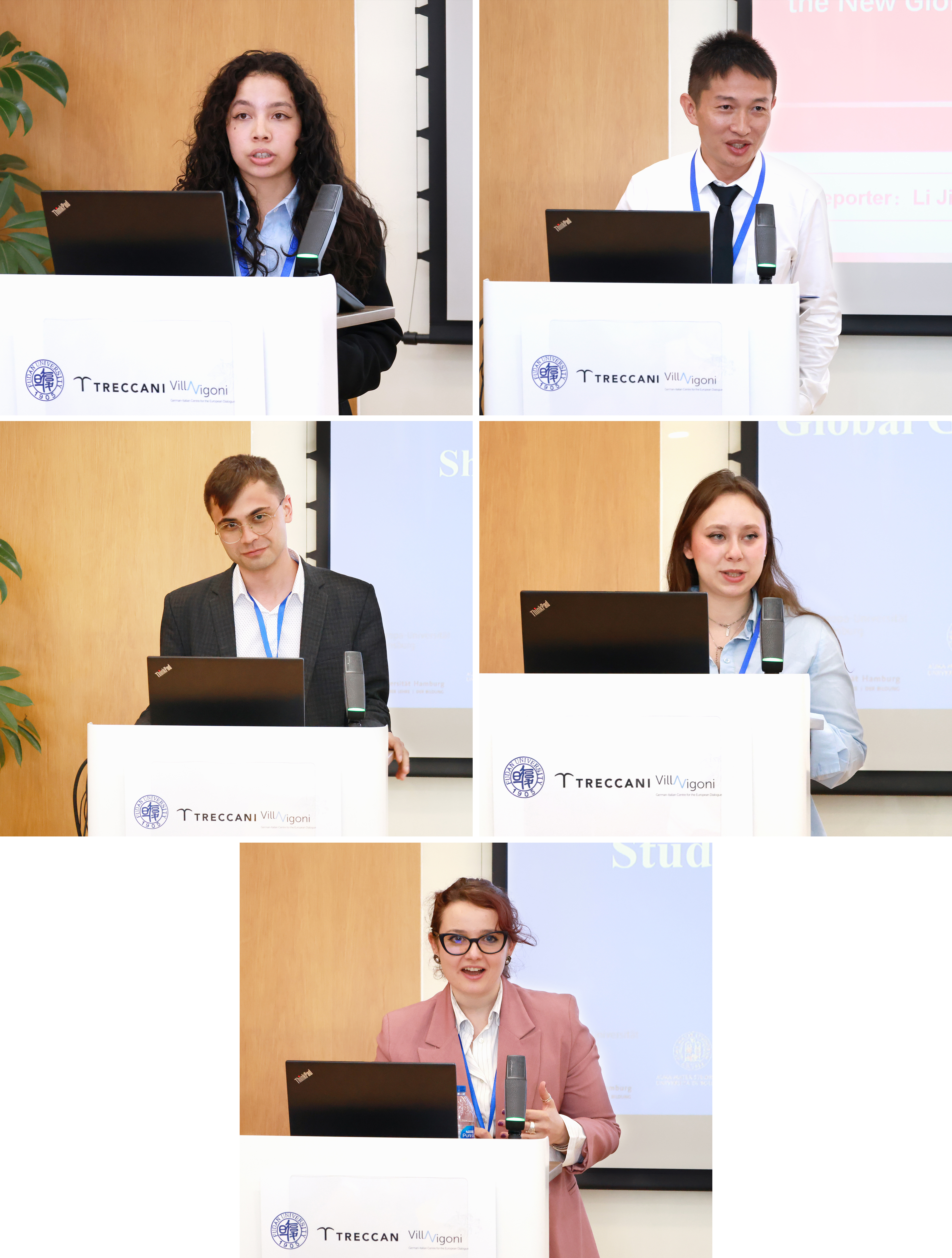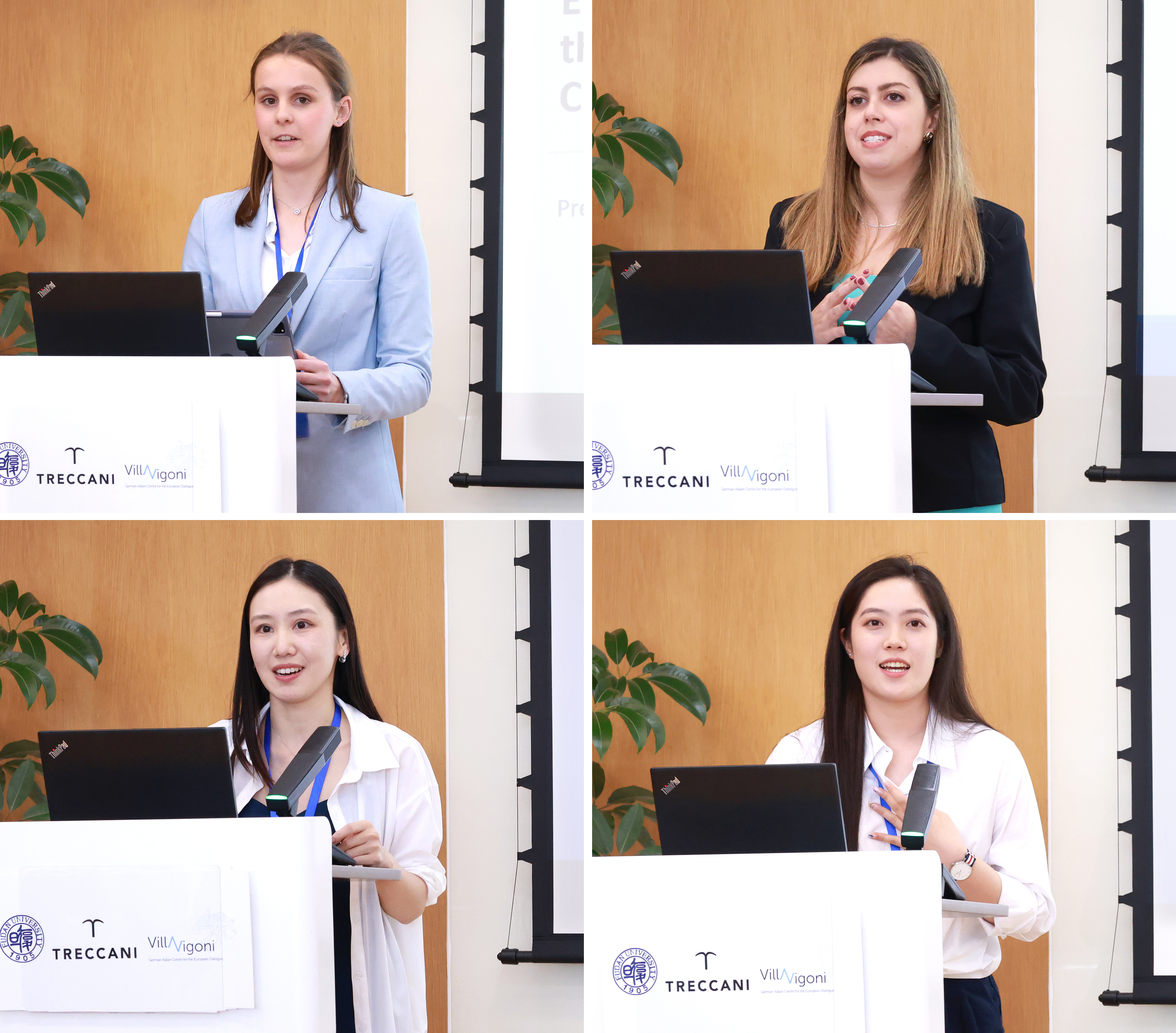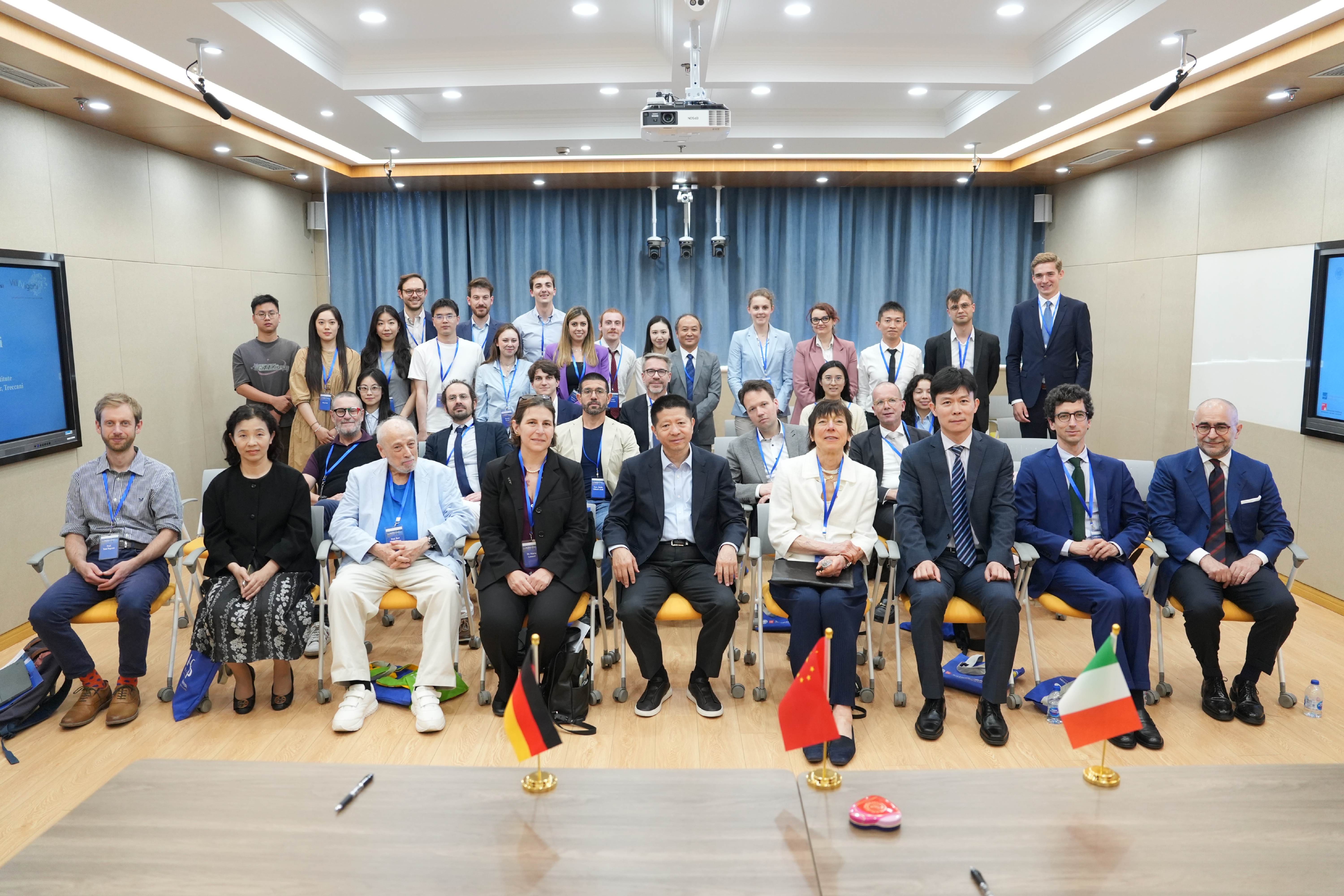
From May 25 to 28, 2025, the “China–EU Youth Dialogue on Culture and Global Governance” was held at Fudan University. The event was jointly organized by the Institute for Global Public Policy (IGPP) at Fudan University, the German–Italian Centre for European Dialogue (Villa Vigoni), and the Treccani Institute, with support from the LSE–Fudan Research Centre for Global Public Policy. The dialogue brought together young scholars and student representatives from Fudan University, Villa Vigoni, the Treccani Institute, as well as from universities including the University of Hamburg, Flensburg University, Bocconi University, the University of Salento, and the University of Bologna. Participants engaged in in-depth conversations on key topics related to China–Europe cultural exchange and global governance. This event was also part of Fudan's annual Youth Dialogue on Global Civilizations series organized by IGPP.

During the two-day academic exchange, participating youth students and scholars from China and Europe engaged in academic presentations and discussions centered around topics such as cultural diplomacy, culture of global governance in China and EU, and the role of culture between deglobalization and global governance.
The first panel focused on “Cultural Diplomacy in the New Global Context –China and EU.” Anne Valerianne, a master's student of IGPP, traced the origins of cultural diplomacy in turbulent times and examined how its value has been redefined. Jiaxin Li, a master's student at Fudan University, explored how cultural exchange can serve as a bridge for understanding and collaboration in the new global context. Timur Magzhanov from Bocconi University emphasized the strategic significance of cultural diplomacy in shaping future frameworks of international cooperation. Michelle Marino from the University of Salento analyzed the concept from the perspective of multi-level diplomacy. The session was moderated by Alberta Ivaldi, Project Manager of Villa Vigoni.

The second panel centered on “Concepts in Transition - China’s Culture of Global Governance.” Yu He, a PhD student of IGPP, examined China’s emerging role in the global development aid system. Heyu Qiao, a master student of IGPP, analyzed the role of local knowledge in the culture of global governance by drawing on China’s experience in managing “urban villages” within megacities. Hendrik Hagen from the University of Hamburg explored the EU’s institutional position in global governance and its spillover effects on non-EU countries. Gian Maria Mallarino from Bocconi University discussed how carbon offset systems are advancing the evolution of global environmental governance mechanisms. This session was moderated by Associate Professor Ziteng Fan of IGPP.

The third panel discussion focused on “Concepts in Transition – EU’s Culture of Global Governance.” Charlotte Rühl from the University of Hamburg explored the European Union’s resilience and its shifting role in the face of global crises. Serena Ceccarelli from the University of Salento focused on the European Parliament as a key actor in parliamentary diplomacy toward China. Dr. Lijianan Zhang of IGPP examined the EU’s governance culture and its applicability in the Global South. Jiayi Lin, a PhD student of IGPP, analyzed the transformative experiences within the EU’s global governance culture from the perspective of civil society transformation. This panel was chaired by Alberta Ivaldi.

The fourth panel addressed “New Way Forward: The Role of Culture between Deglobalization and Global Governance.” Lorenzo Ciaffi and Guido Peroncini from the University of Bologna discussed pathways to new European cooperation by examining key individuals and actors in Sino–Italian dialogue. Zhenqun Shen, a PhD student at Fudan University, focused on mechanisms of China–EU cultural heritage cooperation amid institutional fragmentation. Dr. Tingzhong Huang of IGPP explored the construction of bridges between deglobalization and global governance. This session was moderated by Assistant Professor Xin Ye of IGPP.

Coinciding with the 50th anniversary of China-Europe diplomatic relations and the 120th anniversary of Fudan University, the conference featured a series of cultural and exchange activities. On the afternoon of May 26, Fudan University, Villa Vigoni, and the Treccani Institute formally signed a Memorandum of Understanding. Xin Qiu, Chairman of the University Council; General-Secretary Christiane Traniello of Villa Vigoni; and General Director Massimo Bray of the Treccani Institute, signed on behalf of their respective parties. At noon of the same day, the German and Italian delegations visited Meta-Innovation Hub at Handan Campus of Fudan University. They viewed the digital exhibition “Carving & Painting Han Rhyme” designed and implemented by Professor Qiuxia Chai’s team. On May 28, the delegation also toured the “Fudan Root” exhibition to trace the university’s historical legacy over the past century.







